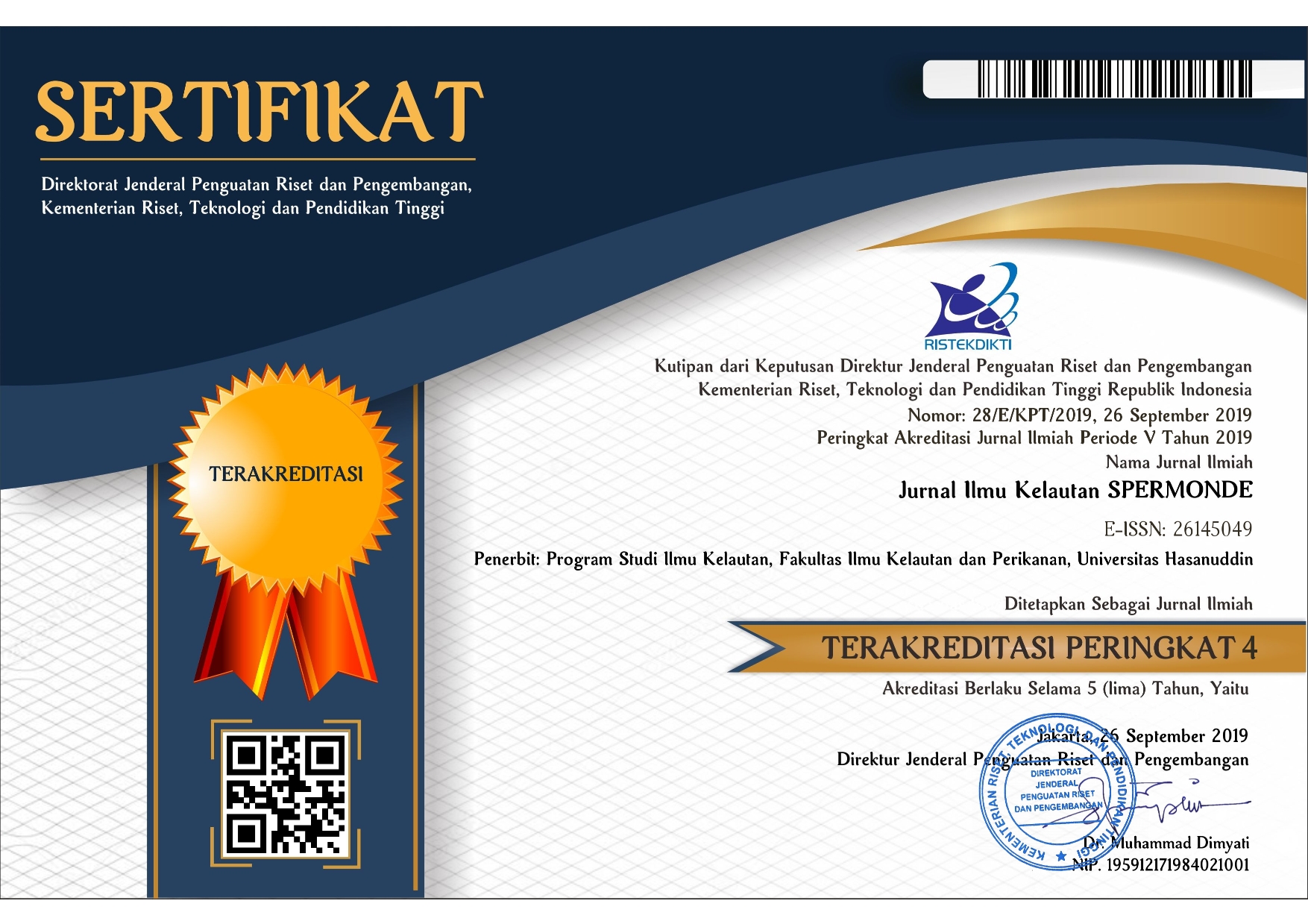DENSITY AND DISTRIBUTION PATTERNS OF FULL-BLOODED CLAM (GELOINA EXPANSA; MOUSSON, 1849) IN MANGROVE ECOSYSTEMS
DOI:
https://doi.org/10.20956/jiks.v9i1.19757Keywords:
Kepadatan, Pola Persebaran, Distribusi Ukuran, Geloina expansaAbstract
Geloina expansa is a clam found in mangrove forests. The high level of public consumption and high economic value, is suspected as the cause of overfishing. It is not impossible that continuous harvesting will result in a decrease in the population of G. expansa. The habitat of G. expansa has experienced a lot of land conversion and this will result in a decrease in the natural carrying capacity of its habitat. The purpose of this study was to determine the distribution and density, distribution pattern and size distribution of the population of G. expansa based on the ecology of its habitat in West Malangke waters. The method was carried out randomly, the transect was placed in a 5x5 m2 sample plot with 3 replications and collected directly by hand. Sampling was carried out on each plot at the lowest ebb. Environmental parameters measured in the field included salinity, temperature and substrate while parameters measured in the laboratory were total organic matter (TOM). The density value of G. expansa in the intertidal zone was 9.90 ind/m2 while in the subtidal zone it was 0.78 ind/m2. The distribution pattern found in the intertidal and subtidal zones is clustered. The size distribution of G. expansa in the intertidal zone found that the dominant G. expansa was adult size, and the lowest was in the old size class while in the subtidal zone the dominant size was young and the lowest was in the old size class. Zone and type of substrate affect the existence of G. expansa. G. expansa was found more in the intertidal zone than in the subtidal zone and clay-type of substrates were a determining factor for the presence of full-blooded clams while clay and sand-type substrates were limiting factors for the presence of full-blooded clams.Downloads
Download data is not yet available.
Downloads
Published
2023-05-01
Issue
Section
Articles
License

This work is licensed under a Creative Commons Attribution-NonCommercial 4.0 International License.

This work is licensed under a Creative Commons Attribution 4.0 International License










